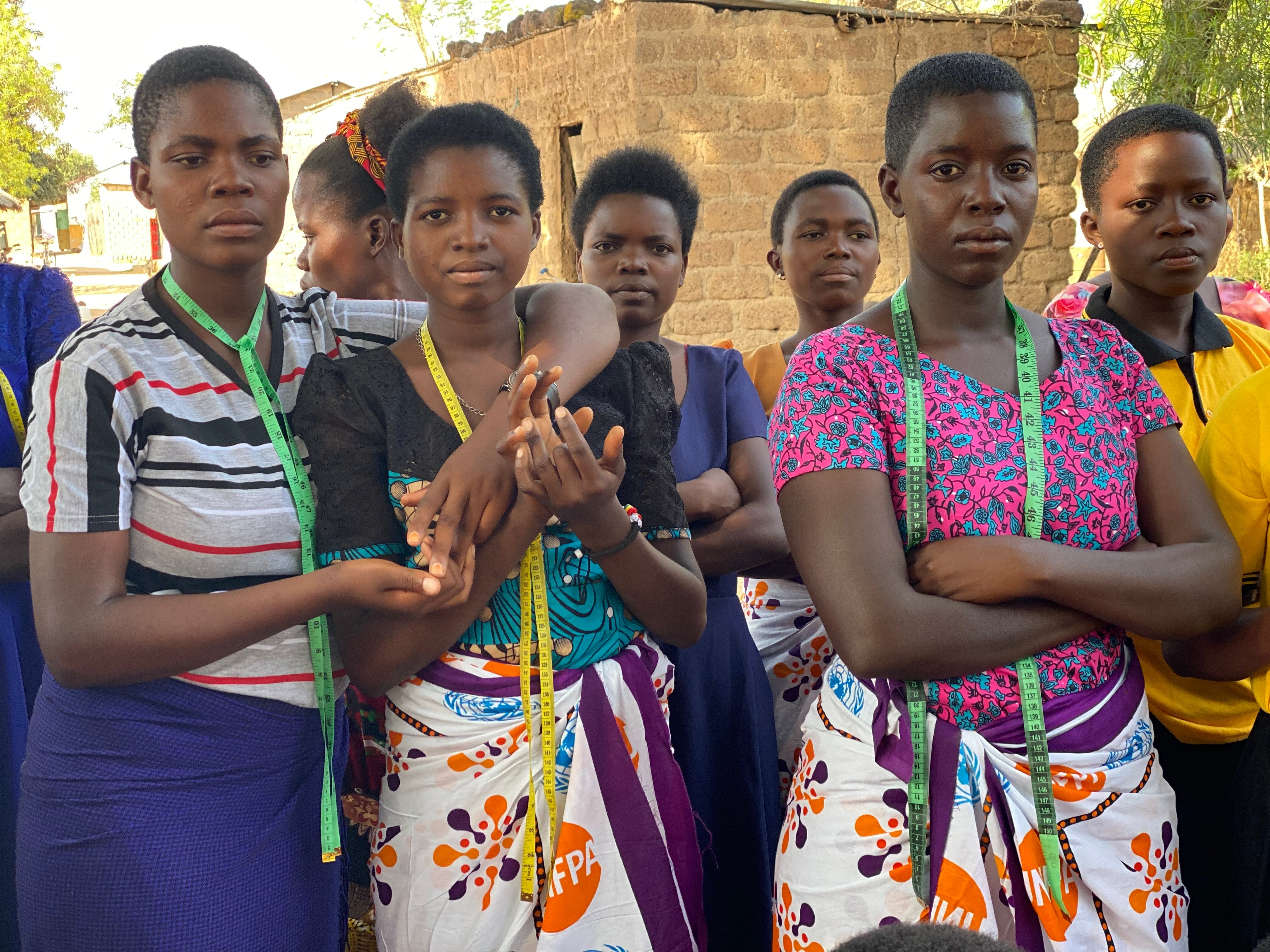When Hazima* first joined the Bugarama Adolescent Girls Club in Msalala District, Shinyanga Region, her father insisted that she was chaperoned by her mother on the understanding that she could attend for a week. Her parents would then decide whether or not the training was worthwhile. Five months on, she is a volunteer peer educator and employed as an assistant trainer for the advanced tailoring course run at the club. Although not a fortune, she earns enough money to support herself and her young child. She says her income has given her a certain sense of empowerment and a newfound respect in her family and community – some light after the dark, she adds.
Challenges faced by adolescent girls
When Hazima became pregnant at the age of 15, there were no discussions about whether she would continue her education, she immediately dropped out of school. Once she had given birth, she was largely ignored by her relatives. Her father said he was ashamed of her – she had brought a curse on the family. In addition to looking after her newborn baby, Hazima was expected to get up early in the morning to fetch water, cut wood, prepare food for meals, and clean the house. When a girl of a similar age in a neighbouring village became pregnant by Hazima’s brother Momose, aged 17, there were celebrations and praise that he had at last become a man – Momose remained in school. Hazima could be forgiven for thinking that life was not fair, or for the girls of Msalala District, particularly equal.

Every year around 69,000 girls become pregnant in Tanzania at a time when they should be in school learning maths and history and life skills. For many it is not a deliberate choice. Gender inequalities, including violence, poverty and a lack of access to age-appropriate sexual and reproductive health education, information and services all intersect to fuel teenage pregnancies. In rural Shinyanga where Hazima lives, the teenage pregnancy rate at 34 percent is higher than the already high national average.
Empowering adolescent as girls; as economically dependent young women
The Bugarama Adolescent Girls Club is one of 10 clubs that have been established in Singida and Shinyanga Regions with UNFPA’s support under the UNFPA-UN Women Joint Programme funded by the Korea International Cooperation Agency (KOICA). The clubs, which target adolescent girls who are not in school, including young mothers and those who are vulnerable to violence, are a safe space where girls learn life skills and attend sessions on sexual and reproductive health and reproductive rights, building their confidence and self-esteem.
“I found courage that I had never had before,” says Hazima. “We [club members] all face different challenges. We cry together, we laugh together, we wipe each other’s tears, and we congratulate each other on our small wins.”
UNFPA in Tanzania is also supporting vocational training for club members, providing them with the tools to become economically empowered women. Although being a tailor is a far cry from Hazima’s preferred dream of a teacher, she says she now feels more positive and would like to open a boutique near to her home in the future. For the time being she is focused on gaining the skills she needs to run a successful business, learning about market analysis, supply chains, how to price her products, and honing her tailoring skills.
Last year my dreams were extinguished, but now I know I am going to become someone in life.
Club members also complete leadership training and Hazima is one of the go-to people in her community for peers who have questions about menstrual health or how HIV is transmitted. She says through the club she has learnt how to look after herself and that her body is no one’s but her own. She also has a better understanding of gender equality and the forces in her community that continue to undermine women and girls, restricting their opportunities, but she is determined. “Last year my dreams were extinguished, but now I know I am going to become someone in life,” she says fiercely.
Our priorities and vision
In Tanzania, many women and girls still live in fear of gender-based violence and harmful practices like female genital mutilation, child marriage and teenage pregnancy. They have no say over decisions that affect their bodies and lives and lack equitable access to education, employment and sexual and reproductive health education, information and services. UNFPA in Tanzania remains committed to ensuring that girls like Hazima have equal rights and equal opportunities and can realize their potential, even against all odds. We will continue to prioritize gender equality and the empowerment of women and girls in support of the Government of the United Republic of Tanzania’s national development visions and to keep the promise of the Sustainable Development Goals – building a better world with women and girls rights and choices at the centre.
* Name has been changed


